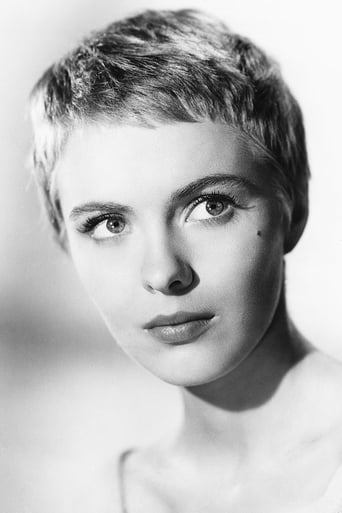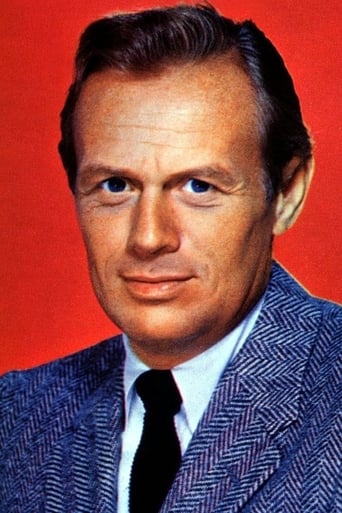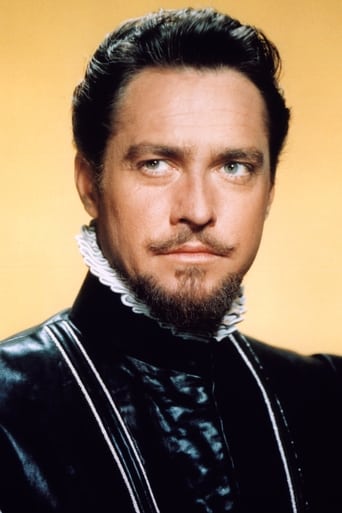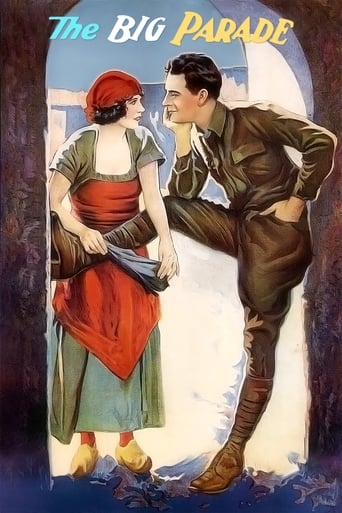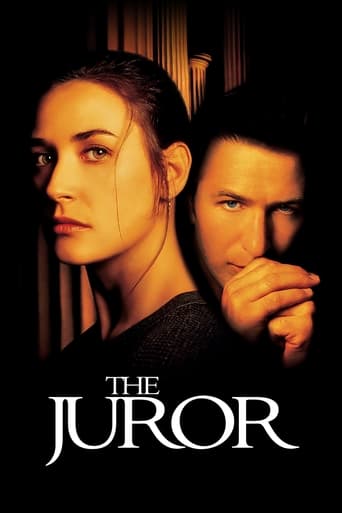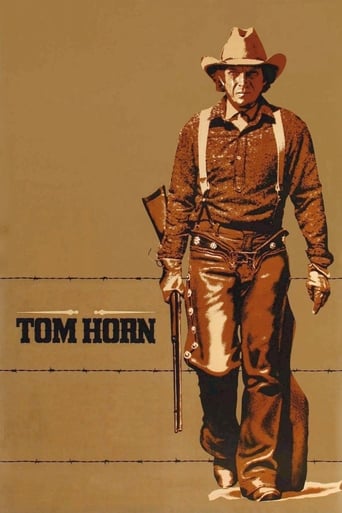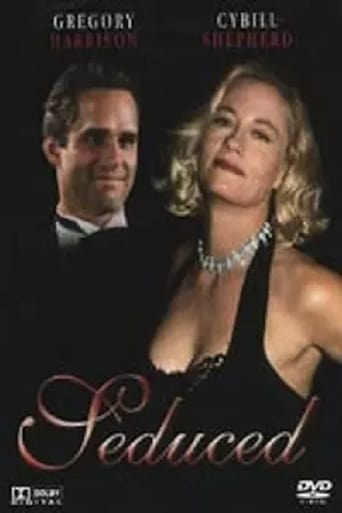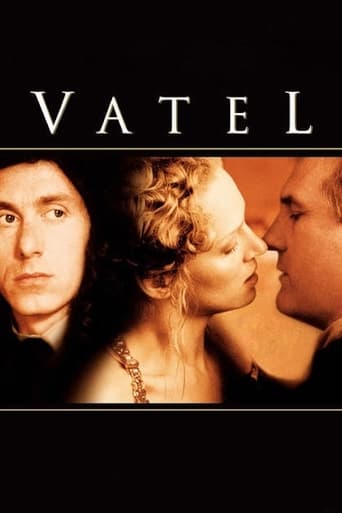
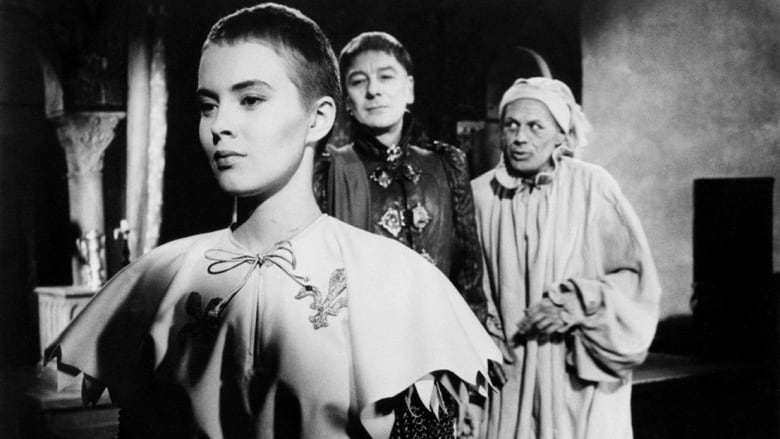
Saint Joan (1957)
Young Joan of Arc comes to the palace in France to make The Dauphin King of France and is appointed to head the French Army. After winning many battles she is not needed any longer and soon she is thought of as a witch.
Watch Trailer
Cast


Similar titles
Reviews
Mankind has always interfered in the individual's right to have a one on one relationship with God in a way which they do not understand. George Bernard Shaw's play asks the question whether or not organized religion has the right to call someone a heretic because they have been given the gift of hearing God's voice and trying to spread their message in a way which the church doesn't approve. Like "The Song of Bernadette" and "The Miracle of Our Lady of Fatima", it is a woman who is the vessel of God's word, a taboo back in the day, especially in Joan of Arc's era. The fact that she dresses in man's clothes also makes her a target, especially when she goes into battle wearing a suit of armor and carrying a sword.This is a difficult film to assess, and even more difficult to get into, but once the message does get through and you accept Jean Seberg in the part (which many believe she was miscast in), the film will grab your soul and you will feel the emotional pain Joan must have felt as she realizes what denying her quest means in her spiritual journey. Seberg's Joan is much more waif like than Ingrid Bergman's was, and she seems more age appropriate. Of course, there are those who are going to use her lack of acting experience against her, even though her vulnerability does shine through amongst the more experienced actors. The fact that she does appear to be an emotionally fragile 19 year old works totally for her as she must face the variety of zealots and chauvinistic men who hold her future in their hands. It certainly was daring of director Otto Preminger to cast her, and in various aspects of her performance, it is a wise choice rather to have cast someone more well known like Natalie Wood.On the other hand, the presence of such veteran actors as Richard Widmark, Felix Aylmer, John Gielgud and Anton Walbrook add authority as the men, so her almost emotionless performance becomes more profound as their judgments against her get more and more authoritarian. This is a film which builds emotionally as her fate becomes more sealed, filmed sort of like Orson Welles' "MacBeth" and Ingmar Bergman's "The Seventh Seal" in a dark, dream-like state that is half dream, half nightmare. The minutes leading up to her execution are profoundly intense, and the burning itself is almost unbearable.Told as if a ghostly visit after her demise, "Saint Joan" is perhaps not the definitive film version of Shaw's classic play, but for what Preminger did, it deserves to be noticed more than the mediocre reviews it initially received. Pretty much every character is given a chance to identify the fact that they are aware that if they are revealed to have been wrong about her, they know they are damned, and yet Joan's ghostly return offers a chance of atonement for some, damnation for others. At any rate, it is one of those spiritual dramas which deserves to open discussion on many fronts, especially with the idea that God speaks to everybody in different ways, that God does show many faces, and that as human beings with weaknesses, strengths, vulnerabilities and passions, we can never understand why God chooses to deal with humanity the way he does.
This movie is a should-be classic. It's not perfect, certainly. The pacing, while perfect for the stage, is in movie form slow as a tortoise with arthritic knees. Jean Seberg is misdirected to be too sweet and too gentle. She fully shows enough acting talent, skill, and craft to convincingly play the clever, passionate, and confident Joan, but, unfortunately, the director missed the point of the character. George Bernard Shaw is my favorite playwright. In no other play has his dialog been more sharp, nor the lines more musical. However, processing this film requires that you look at it as a lawyer. This movie is a case, and the viewer is the judge. That is how this picture is to be enjoyed. 7/10.
GBS wrote his own screen adaptation of this Nobel Prize winning play but didn't live to see it produced (he had won an Oscar in 1938 for his brilliant adaptation of his 1914 play PYGMALION). When Otto Preminger mounted (produced and directed) this production in 1957, seven years after Shaw's death, he had noted British author Graham Greene do the adaptation and it was a solid choice.Taking a cue from Shaw's own screenplay, Greene uses material from the stage Epilogue to create a framing device to meld the two acts of the play (one early and one late in Joan's story) into a unified and most satisfying whole. Where on stage the shift in tone is buffered with an intermission, here it works just as well with a return to KING Charles Balois's bedchamber (where the man Joan put on the throne is dreaming of the events which led to his current situation), and more material from Shaw's Epilogue - the introduction of the shade of John Gielgud's Warwick (the English "king maker").The majority of the language is solid GBS, and the performances from stalwart Shauvians (like Felix Aymler's Inquisitor or Harry Andrews' de Stogumber) to relative newcomers (the film established Jean Seberg's career) are first rate. It may jar some, only familiar with Richard Widmark's many movie villains, to see him playing a frail and somewhat silly Dauphin, but the performance - oddly top billed - is professional, even if arguably miscast.The symbolism of the opening credits and the director's choice to use the visual vocabulary of black and white filming all serve Shaw and the story well. Go in expecting quality entertainment and you won't be disappointed.
This version by Otto Preminger is based on the play by Bernard Shaw, in which the ghost of Joan of Arc appears to Charles VII years after her execution. We then see in flashback how the young maid led the soldiers to victory at Orleans and made the Dauphin king, and how she was later betrayed by nobles, church, and soldiers alike.Jean Seberg plays Joan as a very modern looking, very young girl who questions everything she sees and is at first tolerated and then shunned and feared. Richard Widmark is perhaps too comic as the Dauphin and comes across as miscast, while John Gielgud is reliable as Warwick, the English kingmaker. Other key roles are played by Anton Walbrook, Harry Andrews, Finlay Currie, and Richard Todd.This version of the Joan of Arc tale has a greater feel of realism that the 40s version with Ingrid Bergman, but I rate the silent versions 'The Passion of Joan of Arc' and 'Joan the Woman' higher. Although Seberg puts across a fine performance as Joan, she can't hold a candle to Falconetti in particular.


